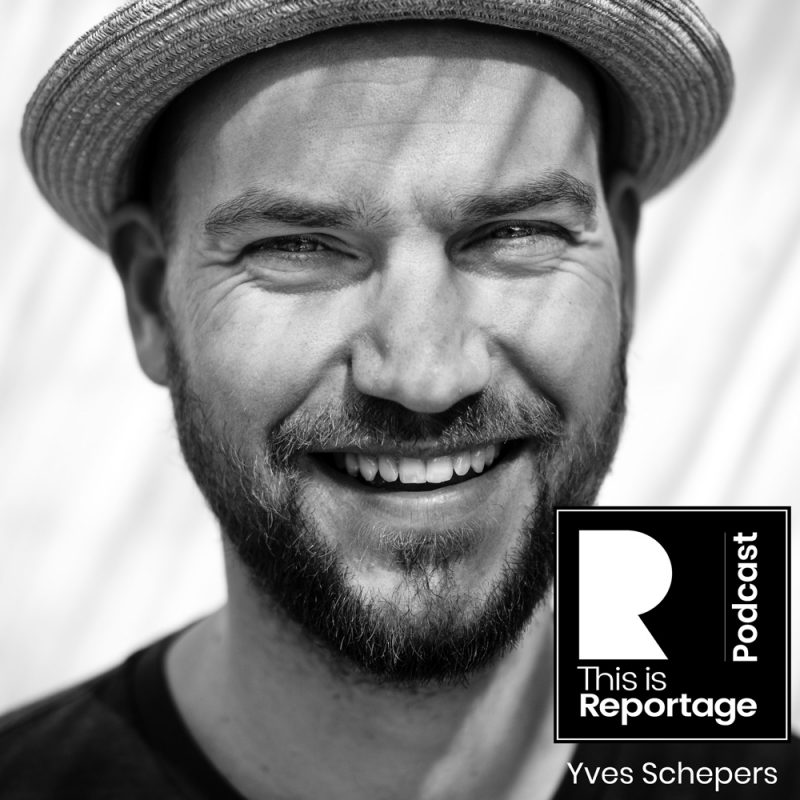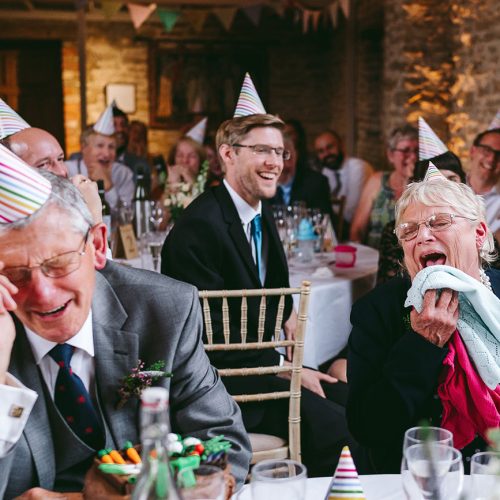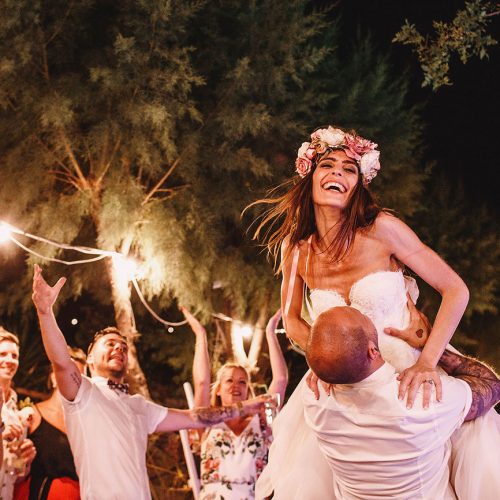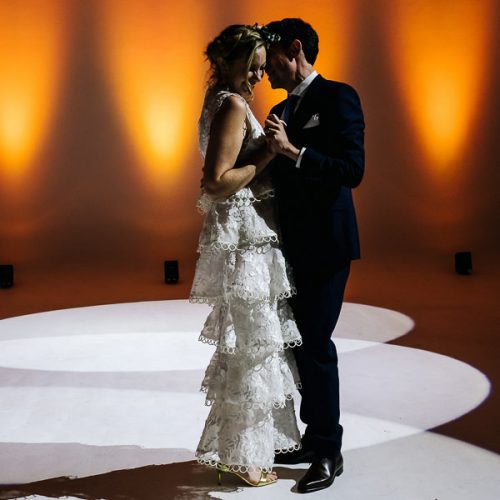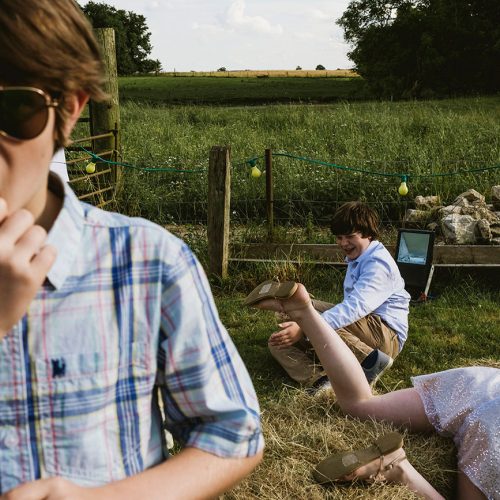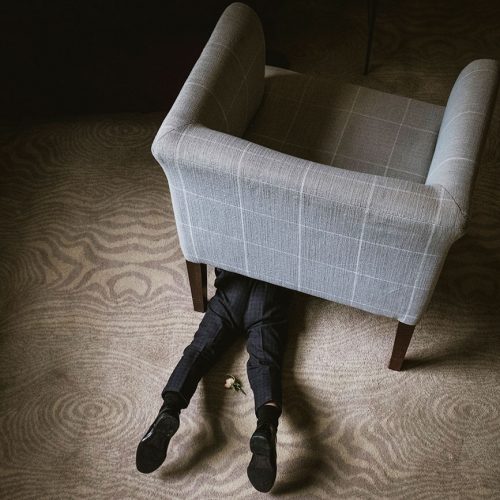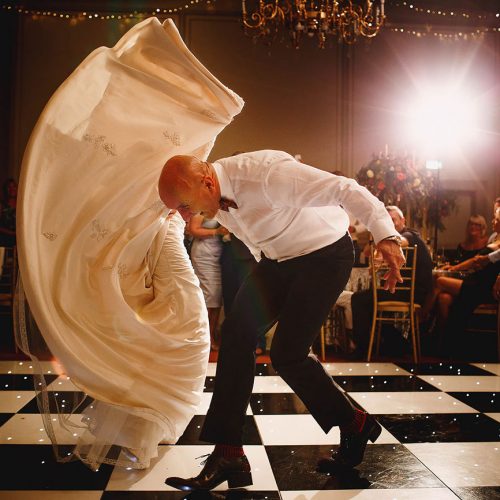Podcast Episode 17: This is Yves Schepers
An absolute pleasure to bring you the awesome Yves Schepers for episode 17 of the This is Reportage Podcast! Based in Belgium, Yves has won an incredible haul of awards from so many associations, including 7 Reportage Awards in a single round here at TiR. Join Yves today as he shares all about:
- why there are so many great Belgian wedding photographers,
- the importance and power of networking,
- shooting other wedding photographers’ weddings,
- ‘Belgian’ fries ;),
- how a certain choice led to him getting started in weddings,
- the old-school negative connotation of wedding photography,
- how Foundation Workshop was a big eye-opener for him,
- the day he would choose to live over and over again,
- nature vs nurture,
- tips on work/life balance,
- a time in his life when he suffered from depression,
- the difference between knowing and realising,
- what drives him to enter awards and associations in general,
- the importance of empathy and being client-focused,
- and much more…
You can listen to our Yves Schepers interview (who is one of the best documentary wedding photographers in Belgium) on iTunes/Apple Podcasts, Google Podcasts, Spotify, YouTube, and here in this post (where there is also a full transcript if reading is more your thing).
Alan Law: Hey, Yves! How are you doing?
Yves Schepers: Hey, Alan. I’m fine. Thank you. Sitting in the sun right now so couldn’t be-
Alan Law: Oh is it nice weather where you are, because you’re in Belgium I think?
Yves Schepers: Yeah, and it’s not always gray and cold and rainy here. Sometimes the sun is out so I’m happy.
Alan Law: That is a good day. It’s quite nice here as well actually, which is very good. I’ve never been to Belgium. I need to go.
Yves Schepers: You definitely need to go. It’s the epicenter of Belgian fries, chocolate, beers, and good photographers I guess. No?
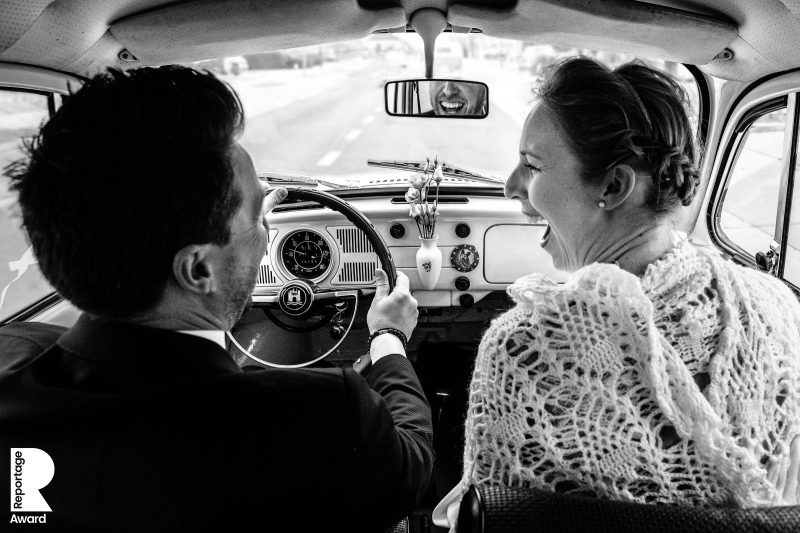
Alan Law: Yes! I was going to ask you about that actually because there does seem to be so many great Belgian wedding photographers. Do they like teach you wedding photography from the age of six or something?
Yves Schepers: No, we just teach each other. I think that’s one of the reasons actually, and it’s not a joke. I think like Belgium, you can divide it in two parts. You have the Flemish part and you have the French-speaking part. And I think obviously the Flemish and the French-speaking part, they just stick together a bit more. And if you don’t take flounders, it’s really small. I know if I drive for let’s say one and a half hours, I can drive from East to West. That means that the community of wedding photographers here is quite close-knit. Everybody kind of knows everyone and it’s very easy to meet up and to drop by each other. And I think that that networking bit really improves and strengthens our community and our craft actually.
Alan Law: Yeah. That’s cool. That’s something I was going to ask you about actually because networking is quite a hot topic. We haven’t really spoken about it on the podcast. Do you think that’s a major reason why Belgium wedding photographers are doing so well, is that you have such a close network?
Yves Schepers: I think so. And it’s also actually the reason I started off being a wedding photographer. Before, I think, I shot my first wedding, I was introduced to a whole bunch of wedding photographers and the great atmosphere and the friendships that I developed in that community just pushed me towards being a professional wedding photographer myself because I was introduced by Dries Rengle, a good friend of mine and he introduced me to a bunch of people. And it was, like I said, so much fun. And I was shooting some photography on the side, but I wasn’t doing anything serious with it. And then I saw this bunch of people having fun and doing creative stuff and it just inspired me to try and pursue the same thing. And I knew like 30 photographers before I even shot my first wedding. And then you have like, in regards to what the network can give you. You share knowledge, you you share jobs.
Yves Schepers: I think in 2014, it was my first real year as a wedding photographer and I launched my website one that I built myself with a crappy template, I bought somewhere online. I think I launched it in November, December, 2013 but I booked 26 weddings in 2014. And it’s not because I was a great wedding photographer. It was just because everybody knew my schedule was empty and they had double bookings or their schedule was full, so they were transferring jobs to me.
Alan Law: That’s cool.
Yves Schepers: Yeah. It’s also why I always say to people that ask me about the wedding photography communities. I think it’s a common thing to say that I don’t see them as competition, but just as colleagues and friends. And I think that’s the real strength of such a community.
Alan Law: Yeah. I totally agree. It’s such a friendly scene as well, isn’t it? Before I got into wedding photography, I thought everybody would be really guarded and holding onto their kind of trade secrets, but everyone seems to be so open. It’s really lovely.
Yves Schepers: Yeah. Indeed.
Alan Law: And it’s one of the best things about going to workshops and conferences, I think, is the networking and meeting other photographers.
Yves Schepers: Mm-hmm (affirmative). Yeah. That’s why I started out with going to conferences of the Fearless Conferences actually. And it just blew my mind, not only the speakers I saw on stage… I think the first time I went was in 2014 in Amsterdam. But it was also like, meeting all kinds of photographers that tackle wedding photography in their own way and have their own style. And yeah, it’s so awesome to know that, instead of working somewhere in an office in Brussels and you have your colleagues sitting 10 meters from you, you have colleagues all over the world.
Alan Law: That’s so cool.
Yves Schepers: Yeah. And you can visit them and… I shot a wedding in San Francisco I think in 2018 of Sarah. She’s also a wedding photographer.
Alan Law: Oh, cool.
Yves Schepers: And I met her at a conference in Romania, a Fearless Conference. And then, we kept in touch and she asked me to be her wedding photographer. And when I was there, I stayed at her place and I hooked up with some other photographers I knew along the road. And yeah, it’s just fantastic.
Alan Law: That’s cool. Yeah, it’s a very cool industry that way.
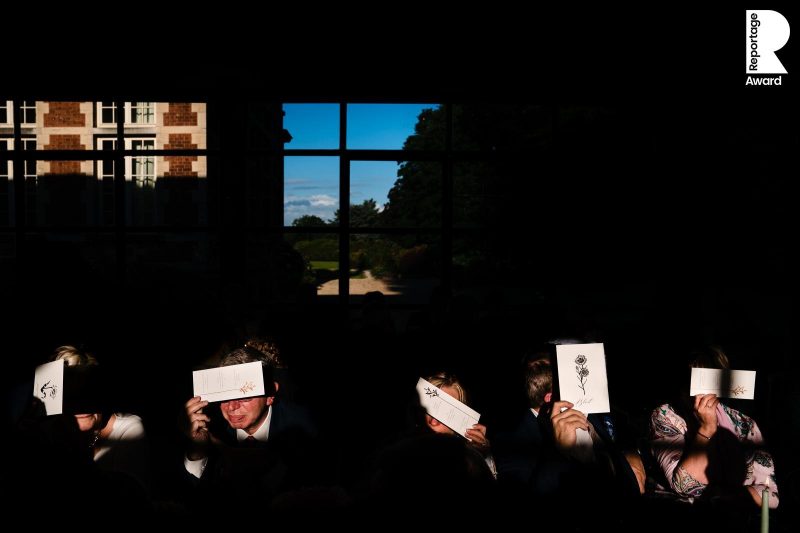
Alan Law: And talking of fellow wedding photographers, you recently… Well, it was about a year ago or so now, was it? You recently shot fellow TiR member Linda Bouritius’ wedding?
Yves Schepers: Yeah.
Alan Law: Which she spoke about on her podcast episode as well. How was that for you? Did you feel extra pressure shooting for another wedding photographer? Was she a good client?
Yves Schepers: Yeah, she was. She was the best client I ever had. No, really, it was… I also shot Phillip Swiggers’ wedding.
Alan Law: Oh, did you? Oh, wow. Yeah.
Yves Schepers: Yeah. And I shot Annelies Gailliaert who is also a wedding photographer from Belgium. I shot her wedding. I did a couple. On the one hand, it pushes me on an edge, like adrenaline flows. And actually, I think that’s the state of mind that I perform the best, in that kind of state of mind when I’m under pressure. But on the other hand, they’re just people. They know how to be a wedding photographer and they just let you be you. They always like just do you and they don’t have extra… I don’t know… Rules. They don’t want you to do this and that. They just trust you because apart from being friends, they know what you can do. And I think the level of trust they give you is often even higher than the level of trust that clients that are not in the business give you. So on the one hand, it’s pressure. But on the other hand, they also give you more freedom. And you know you can experiment more and be more creative; that you don’t really have to do the classics.
Yves Schepers: And Linda’s wedding in particular, I shot it with Dries as a second photographer. And also that’s one of the things wedding photographers, they know how important it is to have a good second with you. So it, right from the start, gives you more freedom. But it was a great wedding, great atmosphere. The people were just relaxed and a lot of stuff happened on the day. And actually, I was listening to her podcast when I was reviewing my work to enter the TiR awards for the first time actually. And I was going through her wedding while I was listening to her on the podcast…inception! But it was amazing. And I think her wedding was one of the stories I entered. So let’s find out how good it is.
Alan Law: Oh, that’s cool. No, cool. It’s good to hear about that. And I guess she made sure you were fed as well?
Yves Schepers: Yes, yes, definitely. But I also tell all my clients I’m low maintenance. I have water and I have snacks with me-
Alan Law: You don’t request a five course meal, then to be set at the top table?
Yves Schepers: No. I’m okay with crew meals. As long as it’s fast and I can just do my own thing, then I’m good. I’m good. I’d rather be independent and know when you end up in an emergency situation or you have to run, or something’s happening, you’re independent, let’s say.
Alan Law: Yeah. That’s good. Low-maintenance as well is always good.
Yves Schepers: Yeah.
Alan Law: Whilst on the subject of food, let’s change tact to that slightly. What would be your last meal on death row?
Yves Schepers: Maybe I should answer this one with French fries because they’re actually Belgian there’s a misconception about that-
Alan Law: Oh, really? Is there?
Yves Schepers: I want to make it clear to the TiR audience that it’s Belgian fries. But apart from that, no, I would choose for a simple mashed potatoes with carrots, like mixed together. I don’t know how to say it. Is it carrot, mashed potatoes? I don’t know how you-
Alan Law: Yeah, I don’t know either the proper word for that.
Yves Schepers: Yeah. Mash the potatoes together with the carrots on one hand and on the other hand, just sausage. Just regular sausage actually.
Alan Law: Wow. You are low-maintenance, Yves.
Yves Schepers: But I kind of I kind of stopped that addiction but I used to eat mayonnaise with everything I could.
Alan Law: Oh, really? Okay. Even mayonnaise with Belgian fries even?
Yves Schepers: I think it’s, one plus one is three. I shouldn’t even think about that question. It’s like they were created for each other.
Alan Law: So when you go to McDonald’s, do you ask for Belgian fries then?
Yves Schepers: Just fries. You don’t have to really pronounciate the Belgium. Everybody knows. Fries is okay. Fries is Belgian.
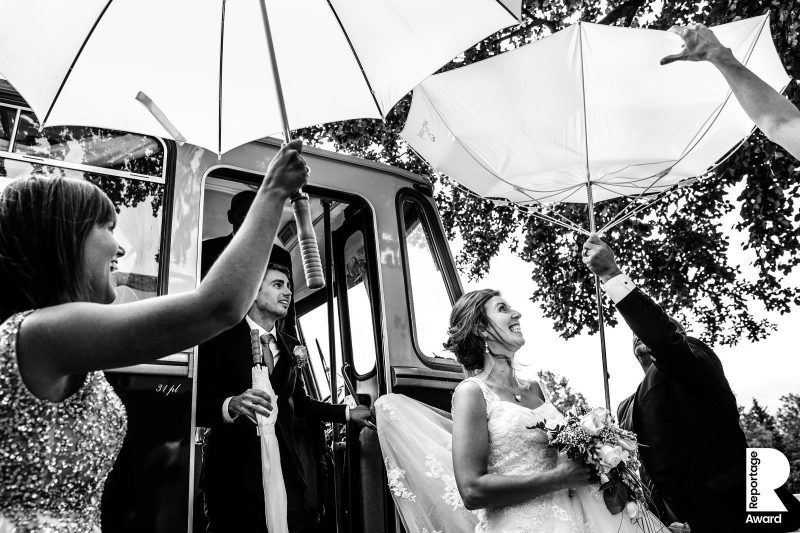
Alan Law: That’s funny. Cool. You touched upon it just a little bit earlier, kind of about how you started to get into weddings. But I just wondered if you could go a bit more into that. Because you used to be an engineer, didn’t you? I think.
Yves Schepers: Yeah.
Alan Law: So how did you go from that meeting with Dries, the other wedding photographers? How did you go literally from that to then start doing your own weddings?
Yves Schepers: Oh, well… I think, I bought my first like DSLR in 2010, something like that. But it was like a crop sensor, Canon 450D.
Alan Law: Oh, yeah. My first was the 500D. My very first camera. So very similar.
Yves Schepers: You were a rich guy then? And I bought that one because actually I wanted… There was a slight feeling inside of me that I was creative, but I couldn’t draw. I couldn’t play music. I couldn’t sing. And I was like, yeah, which kind of tool or medium can I use to try and have an outlet for that creativity? And my father always used to take pictures, but just an amateur level, nothing very serious.
Yves Schepers: And so I bought that Canon 450 D and then I played around with it. I registered for like a year of evening classes in some courses. Yeah. And I didn’t really learn a lot in those courses, because they teach you, you can just find in any other photography book. But it pushed me to go out there and shoot and to exercise and to try and try and try and fail and fail and fail. And I think that was the biggest lesson I got out of it. And that was in 2010 and then I didn’t touch my camera for two years.
Yves Schepers: But in the same time, I was living in a kind of a community house. So I was living in a house together with different people, just to cut costs. I was around 25, 26 and I didn’t have a girlfriend. Didn’t own a house or anything. It was a cheap way and a fun way to live together. And then I looked for a different house because my house mates at that time we’re going to live together with their girlfriends and stuff.
Yves Schepers: And then I ended up by coincidence at Dries’ place. And coincidence, I mean like my girlfriend at the time and me, we were both looking for a different house and we both applied… like applied, it’s very official. But we both contacted Dries and his roommates. Actually, we came to a situation that they had to choose either me or her and I think, they didn’t choose eventually and we had to decide. But then we decided that I went on living with Dries and his friends.
Yves Schepers: But suppose that we made the other decision. How do I know where I would have ended up?
Alan Law: It’s very interesting actually. Isn’t it? It’s like Sliding Doors, the film. I don’t know if you’ve seen that or just one bit of fate and your whole life on a different path.
Yves Schepers: Yeah, because for 200% sure, I wouldn’t have been a wedding photographer if I wouldn’t have made the decision that I would be the one that moved in with them.
Alan Law: I wonder if your girlfriend would have been a wedding photographer.
Yves Schepers: No. Maybe Dries’ persuasion was that big that swept her into wedding photography as well.
Alan Law: So you moved in with him?
Yves Schepers: I moved in with them then. And then, like I told you earlier, I met a bunch of photographers through him and it was so much fun, that on the one hand. And then the other, cliche arose. Is that a good-
Alan Law: Yeah, that’s great.
Yves Schepers: …arose that friends of mine getting married and they know you have a camera that is somewhat better than a point and shoot and they’re like, “You’re a great photographer. Why don’t you shoot our wedding?” And I was like, “Excuse me?”
Yves Schepers: So, I was living with Dries and I was like, okay, why not just try it? And I tried it and it was fun, but I did all the cliches. I put my images in 45 degrees. I only shot on F 2.8. I put like a massive grungy filter on all of my pictures. The post-processing was like a split color. Yeah, all those. Even like a fisheye. I know. I shot at like all the cliches and all the little gimmicks in one wedding. But they liked it and then I shot another friend’s wedding and then it kind of added up to me.
Yves Schepers: There was like one turning point, I was sitting in a meeting in that company I was working with back then. It was like a company that was into freezer storage, storing deep frozen vegetables and stuff.
Alan Law: Okay, that sounds fun.
Yves Schepers: Yeah, it was the time of my life. And they were discussing prices like pallet prices. You know, instead of 2.5 euros per pallet, they would charge the client 2.25 and it was a revolutionary idea. And I was like, what. I saw all of my life like flashing before my eyes and at that point I was like, what am I doing here? And I was thinking about photos and editing. I felt that that was the thing I maybe had to do. So I quit my job and I just started out, without having any portfolio and no website, no name, no nothing. But I saved up some money over the six, seven years that I was working as an engineer and I had low costs because I lived in that kind of co-housing project.
Yves Schepers: So yeah. And I gave myself one year just to see how it goes, to see how I would go. And it turned out for the best and yeah, I’m still happy.
Alan Law: That’s great man. That’s cool, man. Obviously doing really, really well as well. But I think you said for the first couple of years shooting weddings, I think you said you used to be a bit embarrassed to let people know that’s what you did. Is that right? When did that embarrassment go?
Yves Schepers: No, it was just like… Since I shot that first wedding, every time people ask me about my photography, I said like, “Yeah, but I’m doing this as a temporary thing, wedding photography.” I try to be commercial photographer, advertising photographer. Wedding photography in Belgium also had a negative connotation, like a couple each on their side of the tree, like peeping out, those kinds of shots. And so I was always kind of embarrassed and I just like… I saw wedding photography actually just as a kind of cash cow. It’s kind of an easy market to enter because there’s a lot of demand, a lot of couples wanting to get married and they all need a photographer and you have all kinds of budgets, from 500 euros a wedding to, let’s say, 5,000 or more.
Yves Schepers: So it’s kind of a big market and so it was easy to enter and I started as a temporary thing. But mainly because I was shooting weddings as I thought I should shoot them, like shooting the dress, shooting the shoes, your rings. All the normal stuff I saw on other photographers websites, just like the photographers you find in each village with the window shops and everything. I think it was just because I didn’t really find my own thing in the wedding photography. And then it all changed in 2016 when I registered for the Foundation Workshop by Fearless. And I registered because I wanted to be a better photographer. And only after three days, in the five days workshop, I realized it was about stories and telling stories. I was like, what stories? What wedding stories? I don’t know what you’re talking about. So it was a big eye opener and it put me on the right path but-
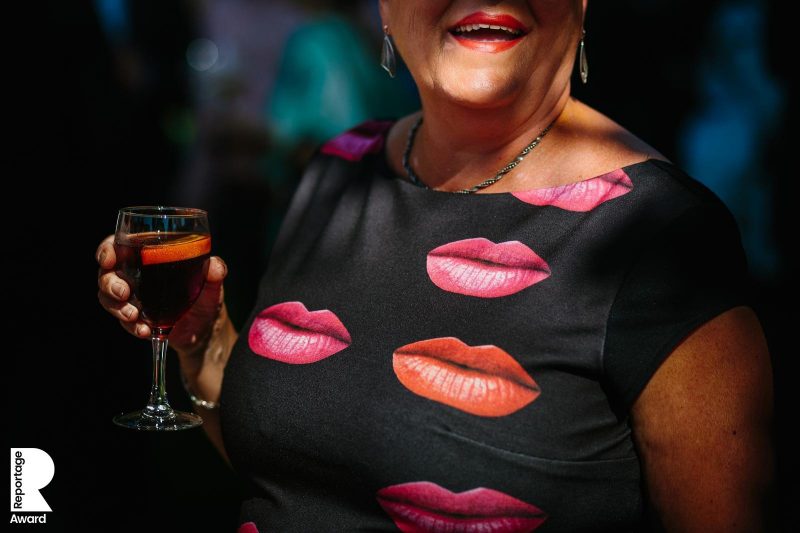
Alan Law: Who were your…Do you have one or two mentors on that, do you?
Yves Schepers: I had two mentors. One was Sergio Lopez. Yeah. On the one hand, it was Sergio. On the other hand, it was Ben Chrisman.
Alan Law: Oh, cool. Okay. Yeah.
Yves Schepers: I see those two pairing up. I see Ben Chrisman being the mind and the ratio and the head of the two and Sergio more being the heart of the two. But they work together so amazingly and yeah, it really had a deep impact on how I… It put me on the right path, but actually the struggle only began because you kind of know and understand where you want to go, but then you don’t have a clue how to get there. And it’s only since I think last year that I really, came to peace with who I am as a person, as a photographer, and kind of have an idea of how I want my photography to be, what I want it to be like.
Yves Schepers: Yeah. So it was, I think, it was an interesting, an interesting adventure. Let’s say.
Alan Law: Well, that’s cool. Cool. We’ll go back to your photography in a minute. So let’s change tack again slightly. If you could choose one day in your life to live over and over again, like Groundhog Day. You have seen Groundhog Day, haven’t you?
Yves Schepers: Yeah, I do.
Alan Law: Because so many people I’ve asked this, they’ve never seen it, which is one of the best films ever, I think.
Yves Schepers: Yeah. And you know Bill Murray, it’s a great actor.
Alan Law: Yeah, he’s brilliant. But which day would you live over and over again if you could?
Yves Schepers: The day I beat you in table tennis.
Alan Law: That’s not happened…!
Yves Schepers: No? You were drunk then, Alan? I was there and I think other people saw it as well. You should check it. No, no, no, it didn’t happen yet. I’m practicing day in, day out, very seriously. Next year at Nine Dots, I will beat you.
Alan Law: Let’s do it. Let’s do it.
Yves Schepers: No, no. Which day? It’s maybe a cliche, but the day our daughter was born.
Alan Law: Oh, yeah.
Yves Schepers: I think a lot of maybe parents will say that, but it’s not the only that day… Because obviously that day or maybe the week that you’re in the hospital, you are in a kind of bubble. And I love the fact that everything, like your whole life around you just stops. You don’t care about the outside world and you’re just with your family, your new family in the hospital so you can totally focus on that. But actually it’s like a specific moment on that day. And actually, Charlotte was born with a C-section. So it was a little bit of a different kind of birth, I think… Because you have children as well, right?
Alan Law: Yes, that’s right. Two little ones. Yeah.
Yves Schepers: And they were born just naturally?
Alan Law: Yeah. Oh yes. Yeah, they were luckily. Yeah.
Yves Schepers: Okay. It’s strange because you kind of have an appointment. It’s not that you have to go to the hospital once the… What’s the name of once the process starts? I don’t know what the naming-
Alan Law: Oh, I don’t know either. We know what you mean though.
Yves Schepers: Now you know what I mean? Okay. So we had to be there at 1:00 PM and then we’re sitting in a waiting room together with some other parents or parents-to-be actually. And then the nurses come and she was like, the c-section of 1:00 PM please. It was pretty like we were at a supermarket and you have a ticket, you’re waiting in line. But anyway, it’s 1:00 PM, we’re there, the nurse asks us to join her. If I’m not mistaken, at 1:39 she was actually born. So it was only 39 minutes and then our daughter was there. But that half an hour, it was pretty hectic with doctors and nurses rushing in, rushing out.
Yves Schepers: Actually I was making images myself, so I was photographing-
Alan Law: Right, cool.
Yves Schepers: Yeah. But so it was like a big rush and then she’s there and then she gets weighed and measured and all the other little, I don’t know, things they have to check. And then normally, I think, in like natural birth as well, the baby does kind of a skinning, like skin-to-skin with mother. But in this case, it was a surgery so they had to close the wound so the father has to do it. It’s like a big rush and then the nurse takes me to a different room. And you have to sit there and she hands you your daughter, she’s under a cover. And then the nurse leaves and then all of a sudden, you come out of the whole rush and then you’re sitting alone in a room with a new life under the cover. And then you’re sitting there for 20 minutes. Then it was that feeling.
Yves Schepers: It was first of all, the strangest thing because you know, as a father, it’s the first tactile contact you have with your new baby. Like if you’re a mother and you’re carrying the child, I think you have more connection during the whole nine months. But as a father, it’s the first connection and everything turns quiet and you’re sitting there and it’s like… I cannot explain differently than it was just magic. And then you start talking to her and how you will take care of her and what you wish for her or whatever. And then all she wants to do is like get to your nipples and drink. But, no, it’s not that nipple, that person.
Yves Schepers: But anyway, to make a small confession, it’s something that at the time, I kind of was convinced it was maybe a small belief that human nature and human character, it had bad intentions. If you look around you in the world, if you look through the news, 90% of the news is about violence and anger and people suffering, suffering caused by, I don’t know, other people wanting power or misusing power.
Yves Schepers: So I kind of had like, yeah, the human race is bad. No, you have a bad character. But then if your baby is laying there and you feel that it’s just… New life is just so pure and it can’t have bad character. It was very intense but it made me also realize the importance of nurture of this nature discussion. And even now our daughter, she’s growing up and she’s two and a half years old. And you know, it astonishes me a little bit how you can influence a human, the development of human being by just little things… How you say little things?
Yves Schepers: She’s now two and a half. So you have to say no a lot because she is trying to find her limits and boundaries and stuff. If you count the amount of times you say no to a child on a day, it’s a lot.
Alan Law: A fair few!
Yves Schepers: Yeah, a few times. But if you think about the word no and how you prohibit the little baby or kid like doing her thing or experiencing or developing a character, you can say differently. Instead of saying no, just don’t use the word no and just try to explain why and how. I think, it has an effect on how your character and how a human develops.
Alan Law: Yeah, sure. Well, man, that’s beautiful there and that would be a lovely time to live over again, that 20 minutes of your daughter’s birth. It’s beautiful.
Yves Schepers: It’s silence, complete like closed off of the world and just… Yeah, it was a magical, magical feeling.
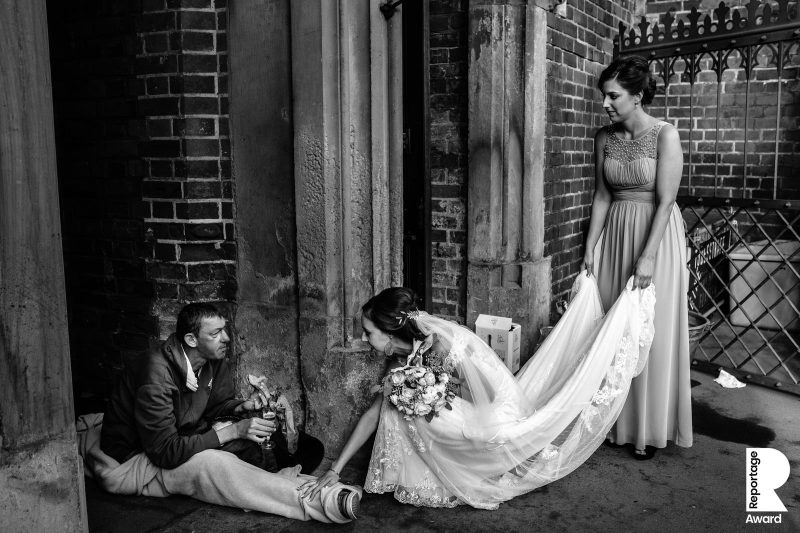
Alan Law: Oh, man. That’s cool. That’s cool. Actually leads me on to a good question as well. How do you find the balance of being a dad now and being a wedding photographer and kind of general work/life balance?
Yves Schepers: Yeah. Yeah. We started off in a rocky path in the beginning because our daughter was born like mid July. So we were talking about the height of the wedding season. It could be around that period. So it was badly timed. So, it was a rough couple of first months, but I learned from that. And 2018 was still a bit rocky. But I turned around my schedule in 2019 and I kind of did an 80/20 analysis… What’s it called? Pareto analysis. And I kind of lined up all the 80% of the type of jobs or assignments that brings me actually 80% of my income. And I kind of ditched all the little assignments that didn’t really have a high return on investment of my time. Because I used to take on… Not everything. But like 95% of the jobs inquiries I just did because I wanted to shoot and I wanted to help people out and it earned money so why won’t you do it?
Yves Schepers: But now I realize that’s not really the right way to approach filling up your schedule. I kind of limited all the services I do to wedding photography, I limited to around 15 to 20 weddings a year. Then, I fill up my schedule with corporate jobs, commercial photography that I can do during the weekdays so it won’t eat up more of my quality time with my family in the weekend. The last bit, I fill up with giving workshops and mentoring sessions because that’s something that I like to do as well. And that’s kind of the way I try to balance the volume of work I do in a year and it frees up time to pick up my daughter at 5:00 PM at daycare. She’s going to school next week.
Alan Law: Oh, wow!
Yves Schepers: So school ends at 3:45 PM if I’m not mistaken. So let’s see how it works. And at 5:00 PM, it’s just full focus on the family until around 8:30. And either I do some sports then or I spend some quality time with my girlfriend or I work if I really have something, a deadline to catch. I can still do some work. But I make sure that the family time between those periods, it’s a Holy thing. My work life balance, it kind of balanced everything out. Yeah.
Alan Law: That sounds good. It sounds like you’ve got it sorted. So I know you’re happy for me to talk about this so I’m not just dropping it on you mid interview, but in your own words, you said you went through a harsh depression in the period from mid-18 to mid-19 but mid-19 was a turning point and you’ve grown so much from it. Can you tell us about that?
Yves Schepers: Yeah, I can. No, indeed, it was a difficult time. And I’m actually happy to talk about it just because I feel it’s still such a taboo. I think if you’re physically hurt or you’re sick or in a hospital, people are concerned and you’re like, okay, how are you? How are you being treated? What’s your treatment? Will you pull through? Whatever. But if they know you’re mentally suffering or sick or whatever, people look at it more differently and they’re like, Oh, is it contagious? Can we still be friends? Like people immediately see you as a weak person. You know? And while it’s such a common thing… I read an article I think last week that, for example, in Belgium, one out of three persons will experience mental problems throughout his life… It’s one out of three.
Yves Schepers: And to be more specific, one out of six, one out of seven it, will actually go through a depression. So it’s more common than you might think. But people are still somewhat hesitant to be open about it. And that’s why I kind of wanted to talk about it as well because there’s a difference in perception. People see you as maybe a successful photographer. In general, if you see people winning awards, having a decent amount of work, also talk on conferences, you can be seen as a successful photographer. And also in, for example, in my personal life, I have a good bunch of friends. You’re doing a job, which is kind of your passion. So people think, Oh, you’re so lucky.
Yves Schepers: But like if I can talk… Or in my case, when I looked at the mirror, I just saw someone who was just not good enough. I had low self-esteem, low self-value. So I think there’s a big difference in perception sometimes, how your realities and how people perceive you. And for example, to emphasize or give an example about the contradiction or that contrast is… I don’t know, March, 2019, I was asked to talk on BodaF in Spain and it’s a very nice conference. It’s one of the biggest audiences. I stood in front of it like 500 people. So, it was quite an adrenaline rush. But I was standing there talking in front of 500 people and while like actually I just wanted to crawl into bed and hide under a cover and… I pulled through. I just put on my happy face and well, went on with the show but it was, I think, one of the most difficult things I had to do until now.
Yves Schepers: And then, it’s such a big contrast of people thinking you’re there on a stage, blah, blah, blah. But in the end, you just want to be alone in bed and just sleep.
Alan Law: Oh, yeah.
Yves Schepers: It was very difficult. And one of the biggest things of ending up in that moment, like depression kind of phase, it was like I said, low self-value, but just being too hard on myself trying to over analyzing everything. I used to be an engineer, so I analyze everything, then over-analyzing everything, tried to be perfect to everyone, like as a photographer, as a boyfriend, as a father, as a friend. And I think that was a big reason. I also believe our society nowadays doesn’t help us in coping in those relations because there’s like a… I think we live in a high-pressure society. There’s a constant flow of information. Everybody wants to come across as a perfect human Being in our social media. That’s a very heavy burden for some people. And not everyone, there are people out there who could cope with it and can put it in perspective. But I couldn’t. I was one of those people that couldn’t. And that led up to going through a difficult time.
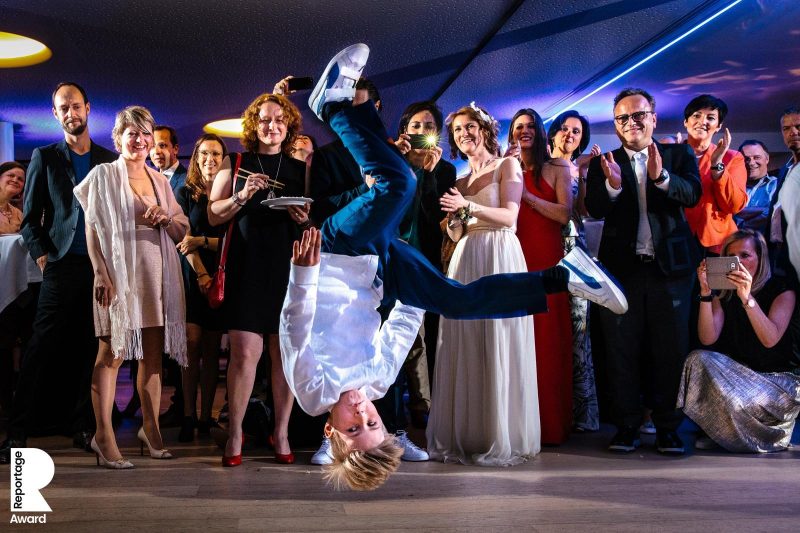
Yves Schepers: But yeah. In the end, I crawled out of it. I don’t want to go into too much detail on how and how I came out of it all. I’m in the middle of trying to write to talk about it because I think it could be very useful to a lot of people.
Alan Law: Oh, yeah. Definitely.
Yves Schepers: I don’t want to give away the narrative too much.
Alan Law: Yeah, of course. That’s fine.
Yves Schepers: But, yeah. I came out of it then in the end, the real outside of me didn’t really change. Before that period, blue was blue, green was green, Trump was president. And afterwards, Trump was unfortunately still president. Nothing really changed, but my perception of life really, really changed a lot. And in that aspect, I think it’s interesting. What I found interesting is how there’s a difference between knowing and realizing something. I don’t know if it makes sense. But for example, it’s not because people say that you’re a good person. No, if you feel bad and I have low self-esteem or low self-value, you know it’s not because people say you’re a good person, you’re a good photographer. It’s not that you see this way as well. But it’s only by going through a process of knowing something, internalizing it, and then making it your own eventually and live by it, that your whole perception can change.
Yves Schepers: And for example, it’s not because you know that junk food is bad that you are going to live by not eating junk food anymore. It’s different. I think that’s a very vital difference and also in the process of changing your perception. Once you are mentally better, the next step is just like doing the physical work. And, I think, for me an important moment or… Mid-September, 2019 actually, a couple of months back. I was 34 at the time. Now I’m 35, more mature and stuff. I woke up and it was a stressful couple of weeks that I was doing a lot of work. And I woke up and I was so tired and I was 34 but I felt like I was 65. Physically, I was like, Oh no, I shouldn’t feel this way. I should feel fit and I’m not.
Yves Schepers: So I knew I had to change, but it’s always difficult. There’s a big threshold you have to cross to change something like that. But then, October… I think, it’s been three, four years that I… In October, I’m doing Sober October, I just stopped drinking alcohol for one month. I did that as well. This time it was like a big change for me. And after two weeks, I was feeling much fitter and sharper, like mentally sharper. I just want to make clear, I didn’t have an alcohol problem. It can seem that I was an alcoholic, but I wasn’t. I was just like being a moderate drinker. I actually don’t drink at home. Some people drink a glass of wine at dinner but I didn’t. When I drink alcohol, it was always when I was at a social event or outside. So out of the seven days in a week, I think I didn’t drink for three or four days. So it’s not that I really had a problem. But still the moments that I drank alcohol though, then consumptions maybe in in a week or maybe seven, six, whatever.
Yves Schepers: It had a big impact then… I once read a book Power of Habit and it’s a book about habits and how to break them. And I read that, you have certain habits in your life that are keystone habits. If you break those habits and try to change them, they have a big impact, like an avalanche of impact on the rest of your life. And for me quitting alcohol was that kind of keystone habit. I had more energy. Because I had more energy, I went out and structured my exercising more regularly so when I’m boxing, swimming more often. And then by doing that, I started looking differently at my diet, like what do I eat during the day. And it just was an avalanche of different things I changed. And couple of months later, right now, I lost around I think seven, eight kilos. And not by living on a strict diet or whatever. I still drink alcohol and still eat junk food-
Alan Law: Including McDonald’s?
Yves Schepers: No, no, no, no. I wasn’t really fan of McDonald’s ever. I’m sorry. But I still eat Belgian fries.
Alan Law: Belgian fries, okay.
Yves Schepers: I just want to underline that again. It’s Belgian fries.
Yves Schepers: No, I’m not living very strict. In the month of January, I think I drank one half of a glass of wine. So I still do it. I think the biggest change I’ve made that it’s not just like a habit or like something in my routine. I don’t drink alcohol because everybody else is doing it or you just feel like it’s social pressure. But if I drink a glass of alcohol or if I eat, I don’t know, fries or popcorn when I go to the cinemas, it’s a conscious decision. And I think that was a big change in how I live now. I just don’t do anything anymore, just out of habit. But it’s always a conscious decision.
Yves Schepers: So that’s also, I think my new mantra, motto in life is like being actively conscious and cautiously active. Like I actively will think about the decisions I take and I’m also very aware of being active in life, like trying to do different projects but also trying actively like literally exercise more. And you know, I think that’s-
Alan Law: That’s cool. That’s a great way to be now. That’s a great mantra, man.
Yves Schepers: Yeah. It’s helps me a lot. I’ve written it on a little post-it and I put it under my computer screen just to remind myself of it, day in, day out. Yeah. Yeah, it’s been an interesting… And I think, one last bit in this whole thing is like the biggest difference also me being before mid 2018 and after mid 2019, I’m still a perfectionist and I still try to excel. Before that time, I tried to excel. And, in order to differentiate me from the rest of the pack, try to be someone among everyone else and step out.
Yves Schepers: But I was focused on everyone else. I was just doing it with keeping one eye on like, what is everybody else doing and I want to be different. I want to be different than them. And now, I still try to excel and still try to create high value but it’s not anymore having a focus on everybody else. But just having a focus on myself and just being powered by the joy of the work I do, like enjoying the process. And not having the goal in mind, but having the process in mind, enjoying it out of a certain passion. And I think that’s a much healthier approach.
Alan Law: Yeah, totally man. I think that’s a great way of looking at it now. I think that’s really positive and yeah. Cool. Well, thank you so much for talking about that. I think that’s really interesting and people will find that really useful to listen to. Thank you.
Yves Schepers: Mm-hmm (affirmative). Yeah.
Alan Law: Do you think this mindset and do you think, has it helped you in kind of entering awards? You’ve won so many awards from so many different associations. What for you is a driving factor that keeps you entering them and does that disconnect help now? You can feel less personally attached to images and things?
Yves Schepers: Yeah. In my life, I’ve always loved competition. I love to compete like playing board games or soccer games or whatever. It’s like I told you earlier, it kind of pushes me on an edge and it pressures me. If the pressure is there, I’m able to excel. If the pressure is not there, I’m not able to excel in some way, like when I was studying in all my engineering studies, I was postponing all of my work until the last day. And I had great results but I need that pressure to perform. And I think competition for me is something that I therefore also liked to do. And it also enabled me… Because everyone, when you start out, you want to distinguish yourself from your peers because you need business. And you need to shout like, “Here I am.” And for me, those awards were like a good means to do this.
Yves Schepers: And so I started out, I think in 2014, it was my first full year as a wedding photographer. And I think in 2015, I think I was on the 11th spot of Fearless Photographers. It was quite a good result.
Alan Law: Yeah, that’s amazing.
Yves Schepers: It like accumulated in 2017, I think, I was photographer of the year at the master of wedding photography. And I was in top 10 of Fearless and I was like, okay, okay, now I made it. Now I’m happy. You know? And I think it was Citlalli Rico who you also, I think interviewed. She’s a friend as well. And she told me like, “No, you have to watch out because that you don’t get caught up in those awards.” Because she also had a similar situation and I was like, No, no. I can put myself above all of that. It won’t fiddle with my mind and I will be able to cope with the expectations and pressure. But actually, I didn’t.
Yves Schepers: It’s like, what is success? How would you describe success? Is it being able to book a wedding or two weddings or three weddings? Is it to win an award? And if you win an award, maybe you want to win two awards. And maybe you want to get in the top 10. Then maybe you want to get in the top three. Maybe you want to be photographer of the year. You always push your new level or how you perceive success forward and forward and forward until it’s at that level that you just crash under the pressure that you put yourself under. That’s also one of the reasons, one of the many, many reasons that I kind of fall into that depression. Just because of the pressure you put on yourself, like to always try to be perfect in every way on every level.
Yves Schepers: And that, I think, is the other side of the medal of all those awards. So, I think, disconnecting the ego from photography also puts all those awards into perspective on one hand. And on the other hand, it also enables me to see awards also as a mean to get to a certain goal in my business. For example, I think that’s also one of the things I didn’t join This is Reportage in the beginning because I didn’t know if it was a high quality association. The awards and conferences, they pop up like mushrooms. They’re everywhere and everybody, the ones that organize it wants to obviously run a business because that’s one of the reasons you do it. But before I want to join a competition and an association, I first want to see like what’s the quality of the people that join it. What’s the quality of that association. Also, what’s the mission? Does it have a certain identity and do I want to identify with that as well?
Yves Schepers: And then the most important thing for me is to see does that association or that competition or whatever, does it give something back to the community? We pay to enter awards and for membership. But something has to come back to that community to grow it to be kind of a learning platform. That’s why I just chose to stop entering in some competitions because it’s just a one way discussion and that’s not how I feel it should work.
Yves Schepers: And that’s why I also like with This is Reportage now, this round is the first round I compete in just because I see what you’re doing with the podcasts, with the community, the Facebook group, also the aspect of the stories, it’s something else. Now I noticed and experienced while I was choosing the stuff I wanted to enter that it makes you think differently of your own work and it adds something to the wedding photography community. And I think that’s an important thing that wedding competitions can give to members and photographers.
Yves Schepers: Yeah. I don’t know if that kind of answered your question.
Alan Law: No, it does. Definitely.
Yves Schepers: When I start talking, that happens a lot to me. I start talking and I don’t know where I’m going to end up.
Alan Law: No, that’s great. Really good. And it’s great having you part of TiR now and it’s really interesting to hear your thoughts and all that kind of thing as well. Yeah, it’s awesome.
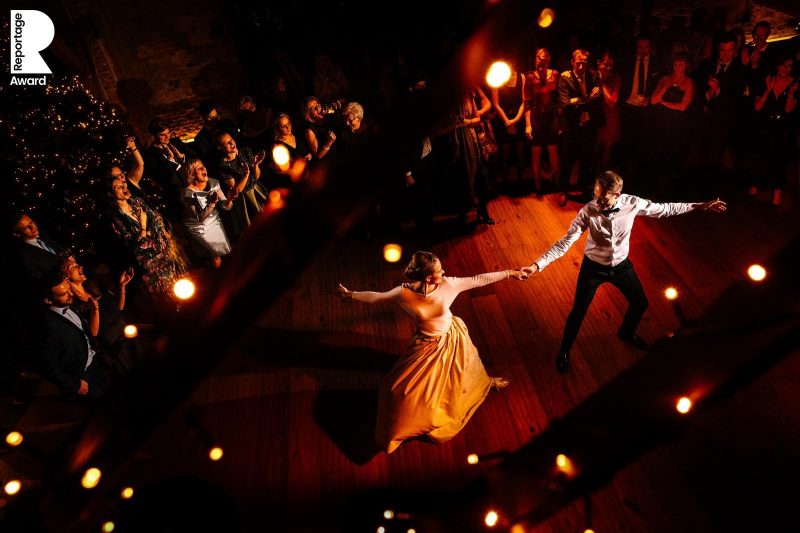
Alan Law: Dude, we’ve just got time, I think, for just one more question. So what in your opinion makes a good wedding photographer?
Yves Schepers: I think, empathy. I think the first word that comes to mind. It’s something that I kind of missed, I think in the past as well. Something that I’ve also learned from my dark period that’s behind me now. It’s something that I learned to have as well. But it’s also, I think empathy and being fully client-focused. And that links to what I told you earlier about disconnecting the ego from your photographer, like in the end of the day, you can be as creative as you want to be and win as many awards that you can win and speak at conferences and travel around the whole world to shoot weddings.
Yves Schepers: The end of the day, you have a client that pays you for a service, and you’re there to shoot their wedding. And they choose you for a reason and you can have a great connection and that’s all good. But in the end of the day, you’re there to shoot their story and not to fulfill your dreams and your aspirations and your yeah, just to check your boxes. You have to check theirs as well. And it has to be a mix of both, obviously. I think that’s a very important thing to be able to set your ego aside and just work for client, even if you’re tired, even if you’re hungry, hangry maybe. Just keep your client in mind and work, work, work. Yeah, I think that’s-
Alan Law: Awesome. Yeah, I think that’s great man. Really great advice. Awesome. Oh, man. Honestly, Yves, thank you so much. That was brilliant.
Yves Schepers: I don’t know. I don’t know if it was brilliant because-
Alan Law: Yes.
Yves Schepers: It’s a one-to-one discussion now and I kind of realized like, Oh, maybe 20, 30, 40 other photographers who will be listening, maybe hundreds of them.
Alan Law: A lot more. Oh, yeah.
Yves Schepers: Maybe I talked about things I shouldn’t have talked about-
Alan Law: Oh, no, I think that everyone will really appreciate you talking, how you spoke there and your openness. And honestly, I think, thank you so much for that. I think it was brilliant.
Yves Schepers: Okay, you’re welcome.
Alan Law: It really was, man. And I really loved talking to you and if people are listening to this while they’re running or editing or in the car, head to the site and you’ll be able to see lots of examples of Yves work and there’ll be a full transcript there as well. I’ll link to your website as well, of course. Oh, man. Honestly, thank you so much for that honesty. I loved it.
Yves Schepers: You’re welcome, Alan. It was my pleasure
Alan Law: And I’ll see you soon, will I? Are you coming to Dublin to Doc Day?
Yves Schepers: Yeah, I will be there-
Alan Law: Cool, I’ll see you there.
Yves Schepers: … to cheer Sanne in her first ever talk.
Alan Law: Yeah, I’m looking forward to hearing her talk.
Yves Schepers: And so we’re going on a road trip with a bunch of other photographers, so it’s going to be fun.
Alan Law: Awesome. I look forward to see you there again. And are you coming to Nine Dots again this year?
Yves Schepers: Yeah, I think I already booked my ticket, so like I said, prepare.
Alan Law: Oh man. Awesome. Awesome. Thanks again and I’ll see you soon.
Yves Schepers: Yeah, talk to you soon. Bye. Bye.
Alan Law: Bye. Bye.
***********************************************************
Many thanks to Yves for sharing so much with us; an absolute pleasure to talk to him for the Podcast.
Check out lots more of his great work on his website, and here on his TiR profile.
Collection 14 is open for submissions now; deadline is 23:59 on 24th March 2020. Members receive 60 Reportage Award and 18 Story Award entries per year, as well as many other benefits. For more information about membership, and to join us, head over here.
Photo of Yves by Sophie Callewaert
